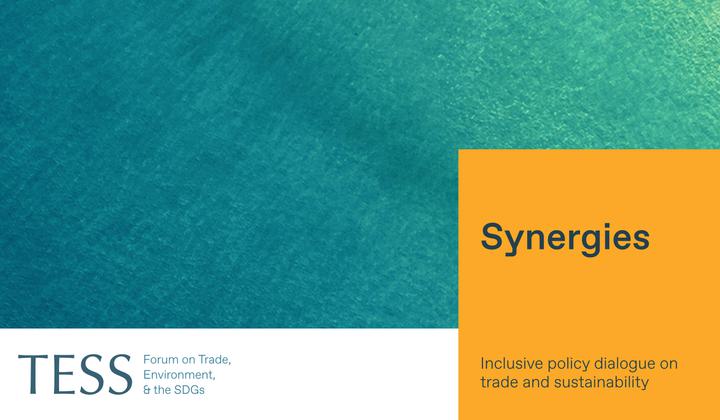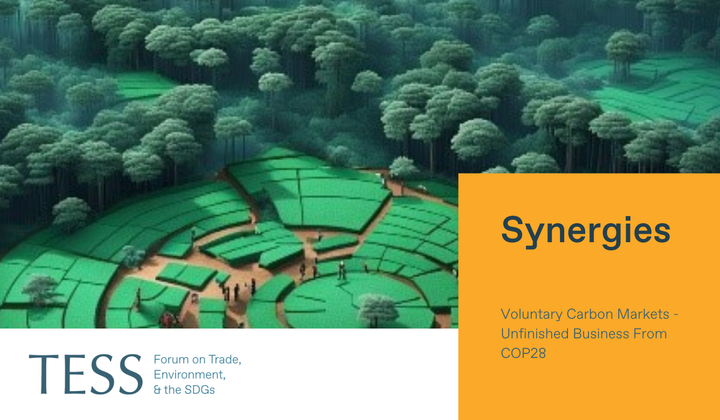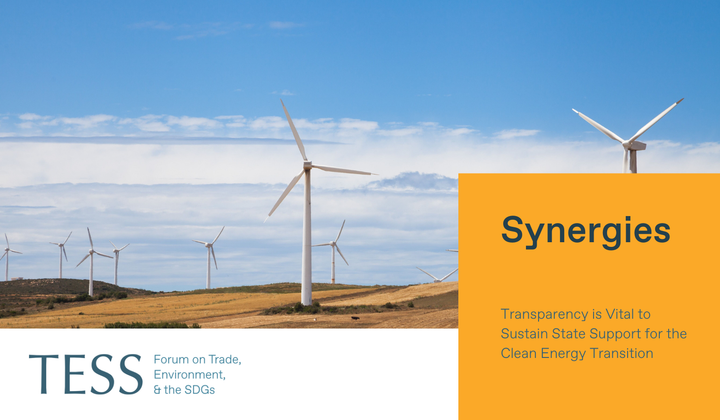At the Thirteenth WTO Ministerial Conference, governments will seek to reach consensus on a transformational agreement on fisheries subsidies. Such an agreement must be balanced and fair and place a premium on protecting our oceans and the people that rely on them, especially vulnerable communities.
This article is part of a Synergies series on reviving multilateralism curated by TESS titled From Vision to Action on Trade and Sustainability at the WTO. Any views and opinions expressed are those of the author(s) and do not necessarily reflect those of TESS or any of its partner organizations or funders.
-----
In February 2024, a few days before the World Trade Organization’s Thirteenth Ministerial Conference (MC13) in Abu Dhabi, Barbados ratified the Agreement on Fisheries Subsidies, commonly known as “Fish 1”.
This ratification was a long time coming but it had not been an easy ride. Barbados, like many other small island developing states (SIDS) and small, vulnerable economies (SVEs) had been intimately involved in the fisheries subsidies negotiations since they were launched formally in 2005. As an island state that depended on fisheries for food security, jobs, and livelihoods the negotiations quickly rose to the top of the policy agenda for Barbados. As is the case with many other small economies that have similar economic structures and limited natural resources on land, we recognized that our maritime space was one that we both had to protect and sustainably exploit as we diversified our economy away from sugar.
One of the most significant contributions that SIDS and SVEs made in the very early years of the negotiations was to introduce into the mandate language on special and differential treatment that focused on livelihoods, poverty alleviation, and food security as important parts of any final agreement.
One of the most significant contributions that SIDS and SVEs made in the very early years of the negotiations was to introduce into the mandate language on special and differential treatment that focused on livelihoods, poverty alleviation, and food security as important parts of any final agreement.
Trade history is unfortunately well known for erasing the contributions of small countries in trade outcomes, but the history books should be kind in recognizing the role that Barbados, the Caribbean, the Pacific, and other small economies played in highlighting why any negotiation on fisheries had to be more than just about trade rules and protection of marine resources; it had to ultimately also be about people, especially vulnerable communities.
And this is why delivering a fair and balanced Fisheries Subsidies Agreement at MC13 in Abu Dhabi is necessary on so many levels.
First, the WTO needs this win. Multilateralism is under threat and the only multilateral trade rule-making organization is no exception. MC13 is a stress test for the WTO, but also for members on whether they truly wish to recommit to mechanisms that can lead to shared outcomes where everyone can be mildly satisfied and hence only mildly dissatisfied.
The June 2022 Fish 1 agreement confirmed that the WTO can produce legal outcomes and it sent a strong, though fairly obvious, signal that Illegal, unreported, and unregulated fishing would not be tolerated. A February 2024 outcome on “Fish 2”, a much more transformational agreement, does more than simply send a signal: it will be a sign of positive defiance in a world where geopolitics threatens to dismantle structures of multilateralism.
Second, it bolsters the WTO and the trade community’s sustainability credentials. Often touted as the WTO’s first successful trade AND sustainability outcome, the Fisheries Subsidies Agreement aims to arrest decades of destruction of fish stocks by industrial fishing fleets while also placing a premium (and some capacity building through the Fish Fund) on centralizing fisheries management as a core pillar of ecosystem recovery.
At a time when the climate crisis is the most existential threat of the 21st century and when many of the most vulnerable island nations are on the frontlines, a WTO that does not address sustainability and the green transition risks ringfencing itself obsolete.
At a time when the climate crisis is the most existential threat of the 21st century and when many of the most vulnerable island nations are on the frontlines, a WTO that does not address sustainability and the green transition risks ringfencing itself obsolete.
Third, it supports the call for special and differential treatment to be operational and based on needs, while also recognizing the need for common but differentiated responsibility when seeking to protect the global commons.
One doesn’t need to be an oceanologist to agree that those that contributed the most to the diminishing fish stocks should have the greater responsibility in curtailing exploitative fishing activity; and that those small countries that rely on fishing for employment and nutrition should not be constrained. The de minimis proposal championed by the African, Caribbean, and Pacific (ACP) group of states and first put on the table in 2005–06 by small vulnerable economies is a fair, practical, and measurable mechanism to differentiate between those who have the potential to offer subsidies that lead to overfishing and overcapacity and those that do not.
That said, the continued assertions in some quarters that those countries who fall under the de minimis in the text, and hence will be able to continue to provide support to their nascent industries, should be more strongly disciplined show a lack of sensitivity to small island priorities and our indescribably small impact on fish stocks.

And fourth, an actionable agreement that truly disciplines the greatest subsidizers and sends a signal to the largest fishing nations to reassess their activities is a developmental win for the ocean and for small developing countries that need to diversify and confront food security challenges.
While recognizing that all countries may have artisanal and small-scale fishing communities, not all WTO members have the capacity to provide unemployment benefits, seasonal pay, skills retraining, boat upgrading to meet “green” rules, or alternative livelihood incomes. Barbados certainly does not, hence giving us the flexibility to protect our artisanal and small-scale fisheries should not be a decision to be traded off to the highest bidder: it is the difference between coastal communities slipping into poverty or not. Our small islands cannot afford for that to happen. One only has to look at a recent video submission circulated as a room document in the fisheries subsidies negotiations by Barbados to understand the impact of fishing on women’s economic empowerment and on food security for small islands.
Barbados’ road to ratification included national consultations with the fishing communities to understand their needs and their realities. It has informed our negotiating position and confirms why the final agreement must be balanced, fair and place a premium on protecting our oceans and our people that rely on them. WTO members must deliver on this at MC13.
-----
H.E. Matthew Wilson is Ambassador and Permanent Representative of Barbados to the United Nations, World Trade Organization, and other international organizations in Geneva. Ambassador Wilson is Chair of the WTO Informal Working Group on MSMEs. He is a member of the TESS Steering Committee.
-----
Synergies by TESS is a blog dedicated to promoting inclusive policy dialogue at the intersection of trade, environment, and sustainable development, drawing on perspectives from a range of experts from around the globe. The editor is Fabrice Lehmann.
Disclaimer
Any views and opinions expressed on Synergies are those of the author(s) and do not necessarily reflect those of TESS or any of its partner organizations or funders.
License
All of the content on Synergies is licensed under a Creative Commons Attribution-NonCommercial-ShareAlike 4.0 International (CC BY-NC-SA 4.0)
license. This means you are welcome to adapt, copy, and share it on your platforms with attribution to the source and author(s), but not for commercial purposes. You must also share it under the same CC BY-NC-SA 4.0 license.
If you would like to reuse any material published here or if you have any other question related to Synergies, send an email to fabrice.lehmann@graduateinstitute.ch.




